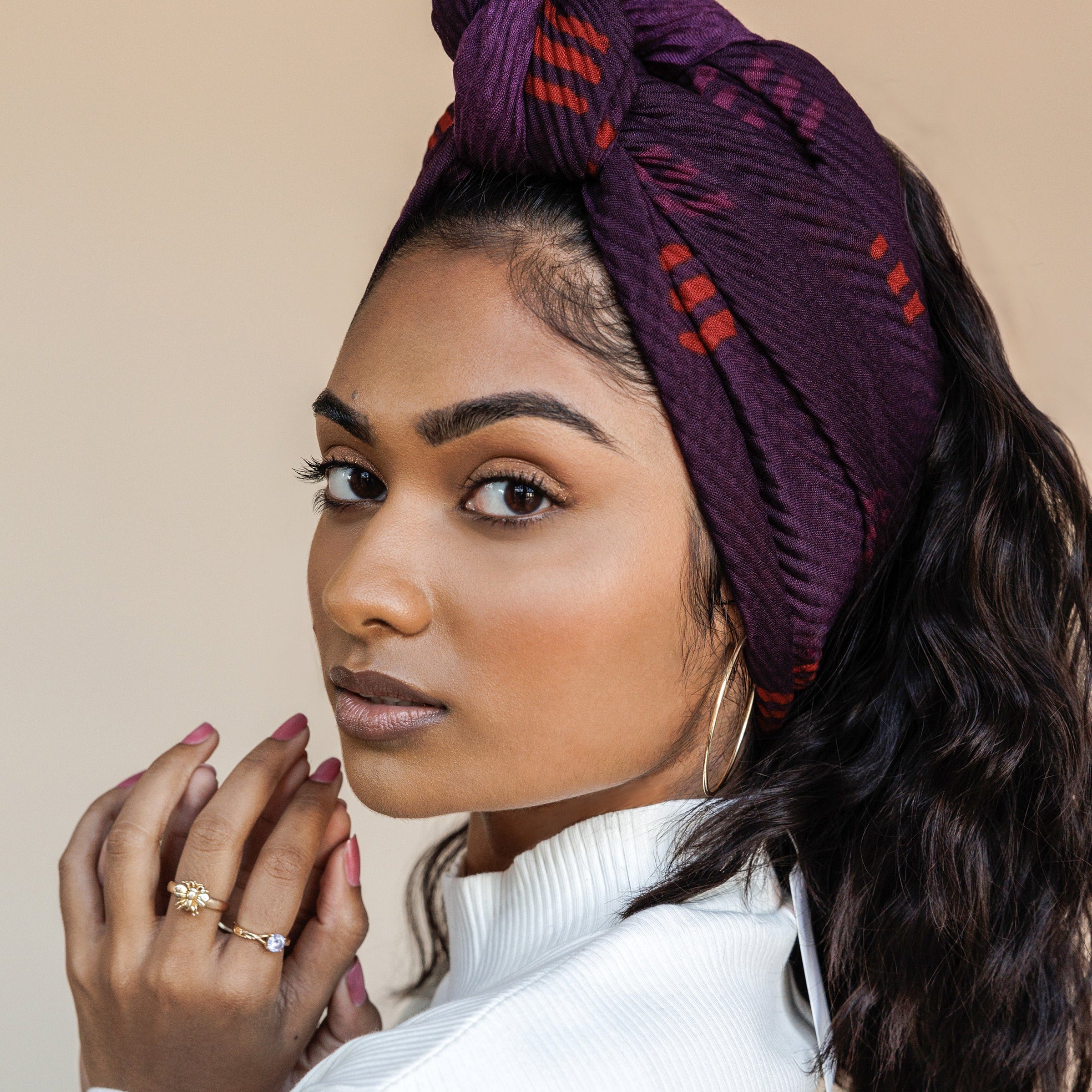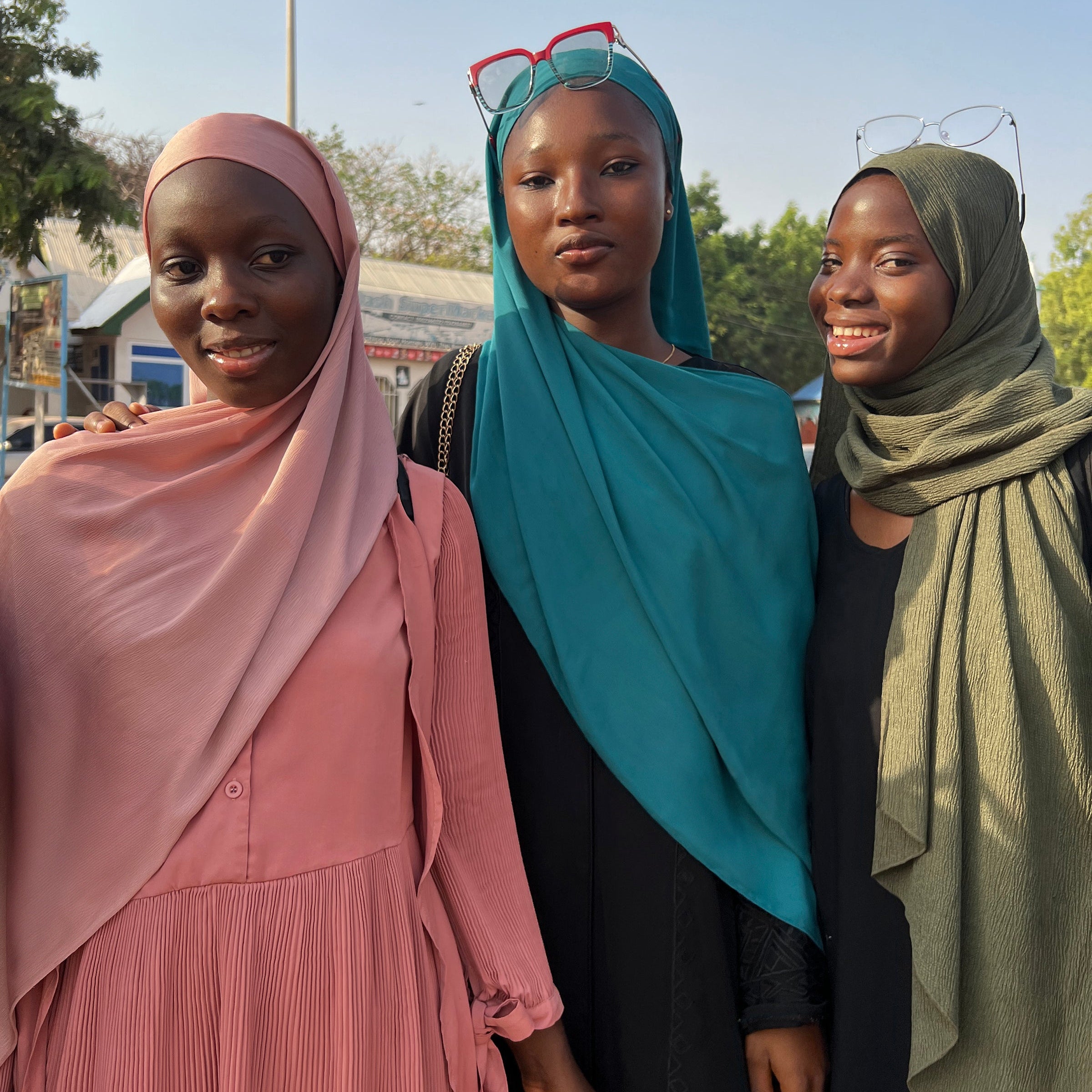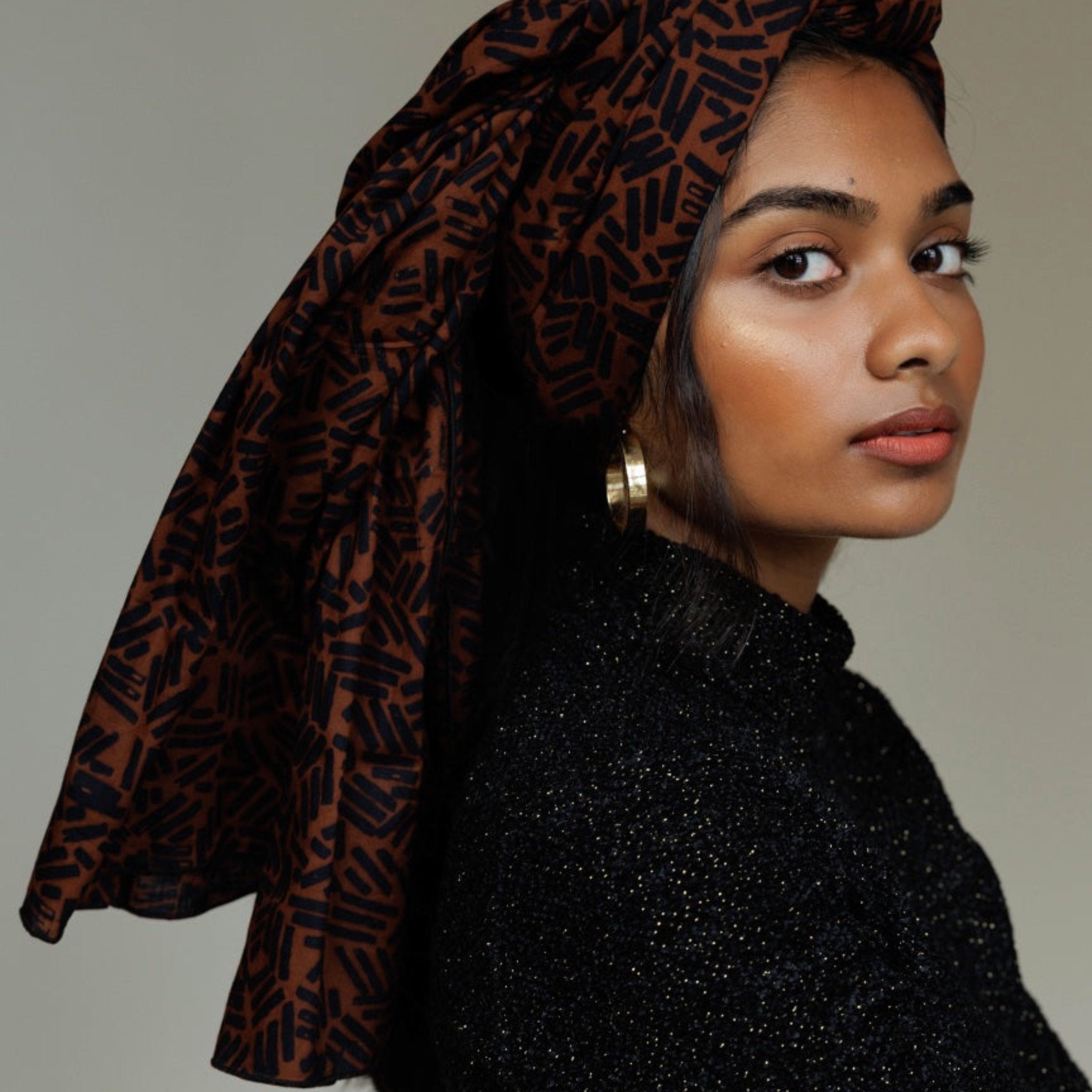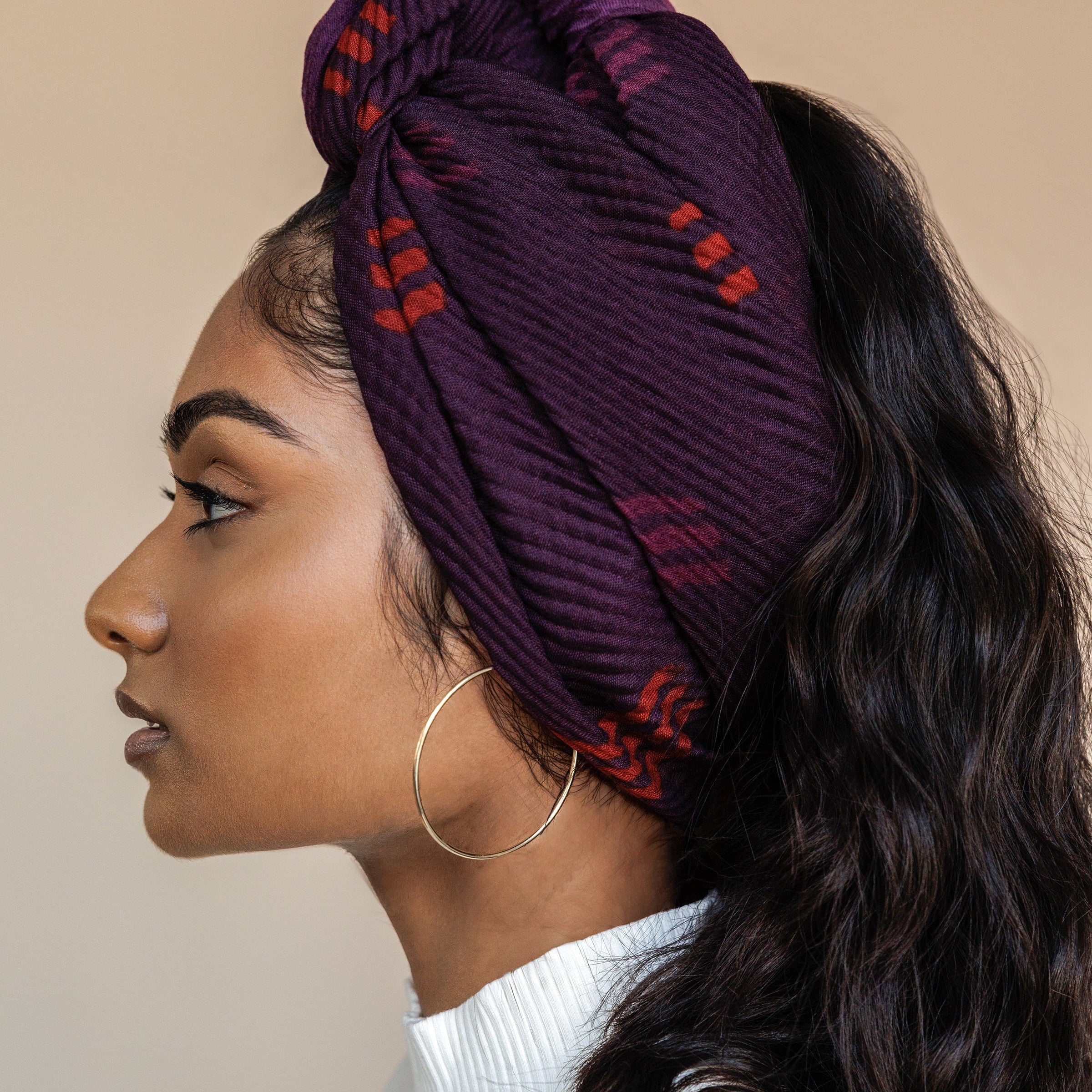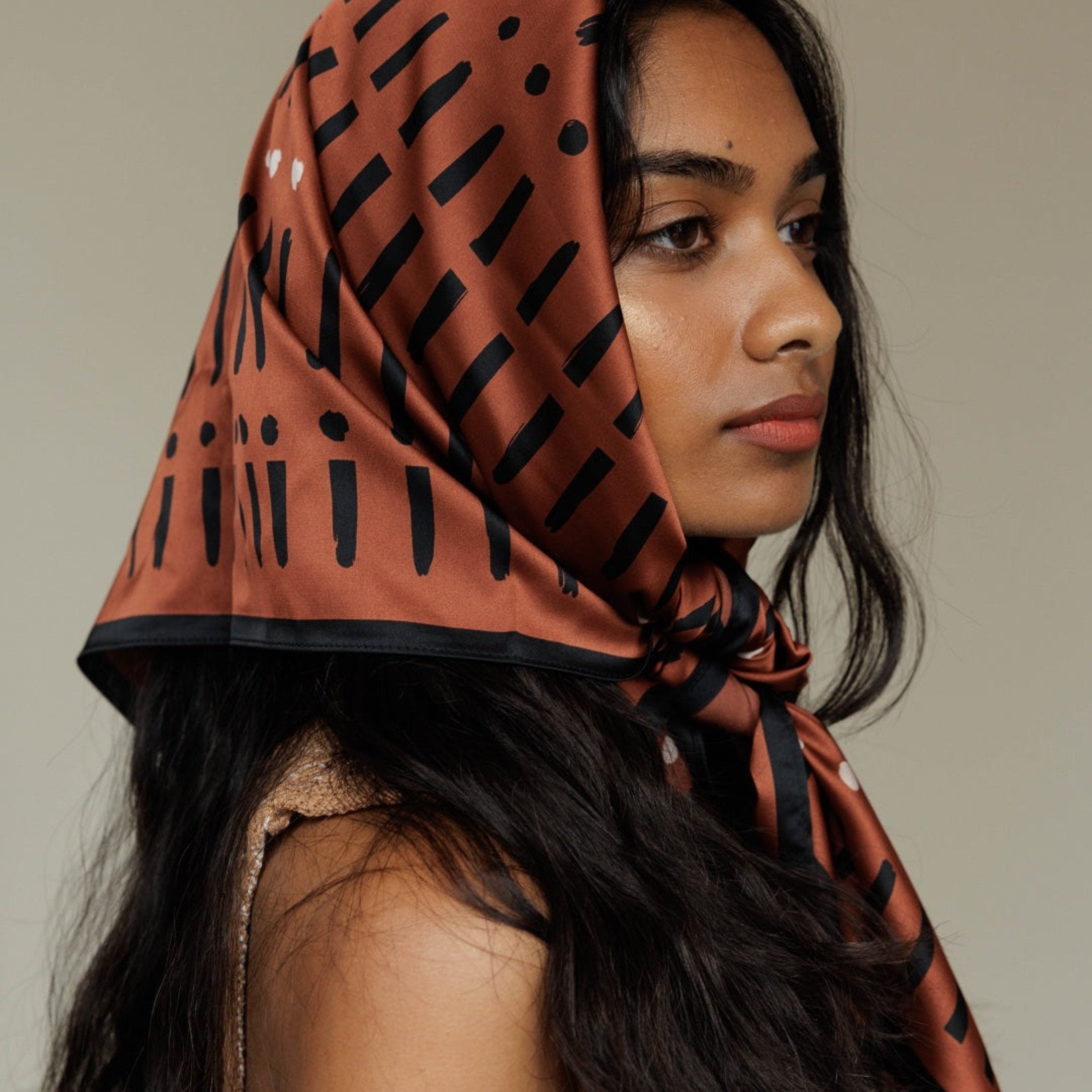Can I wear your head wraps if I’m not Black?
"For it not to be cultural appropriation, there has to be recognition, respect, reward or recompense. You have to ask yourself which people benefited from this product—did someone receive an income from it?"*
One of the most common questions we receive as a Black-owned brand is, “Can I wear your head wraps if I’m not Black?” The short answer is yes! However, there must be mindful practices at-play when deciding what and how to style your wrap.
Inspired by West African traditions of head dress, The Wrap Life’s ultimate goal is to encourage beauty and self-expression through the medium of expertly designed products and representative photo campaigns. We at The Wrap Life want everyone to feel comfortable and confident wearing our products no matter what race, gender, and/or religion you are or identify as. In fact––we are working hard to expand to a wider and more diverse audience that is reflective of our mission and inclusion initiatives.
Head garments can be seen and reflected in cultures all over the globe like Sikh Turbans in South Asia, Russian “Babushkas”, Nigerian Geles and so on. No one person owns the concept of head wrapping but it’s important to understand the existence of cultural appropriation and its “shared nature”. Many do not believe in the legitimacy of cultural appropriation––and that itself is a flawed thought. Fashion, whether traditional, modern, religious, or contemporary, has the ability to exist separately from the people whose culture is being appropriated. In other words, a head wrap style such as a Hijab can stand independently from the Western Asians and Northern Africans who popularized the religious head wear.
This presents a real-world problem as harmful depictions of the Hijab have been represented in film, television shows, and literature among many other cultural mediums. The Hijab has been misrepresented as a symbol of terrorism and female opression by Western media and the appropriation of the Hijab by non-Muslims without the acknowledgement of its external factors (racism, colorism, discrimination, islamophobia) and the respect of the Islam leaves Hijabis feeling unheard and misunderstood as a consequence. As Susan Scafidi, author of Who Owns Culture? says, “cultural products of others are often easier to accept and assimilate than the individuals––themselves.”
The ideas of cultural appropriation are applicable to all non-empowered groups and peoples. So before wrapping, make sure you’re asking yourself about where you’ve taken your inspiration from and if you’re potentially appropriating a style. If you’re still unsure but really love our products, we have bandies, scrunchies, and turbanettes that can be worn by anyone and everyone!
Happy Wrapping and welcome to The Wrap Life.
*Peter Denham, former Director of Curatorial and Exhibitions at Museum of Applied Arts and Sciences.


